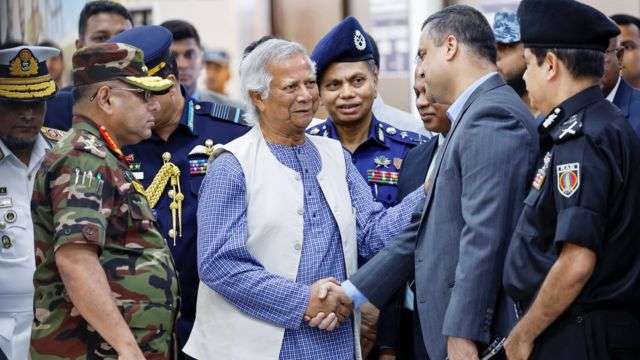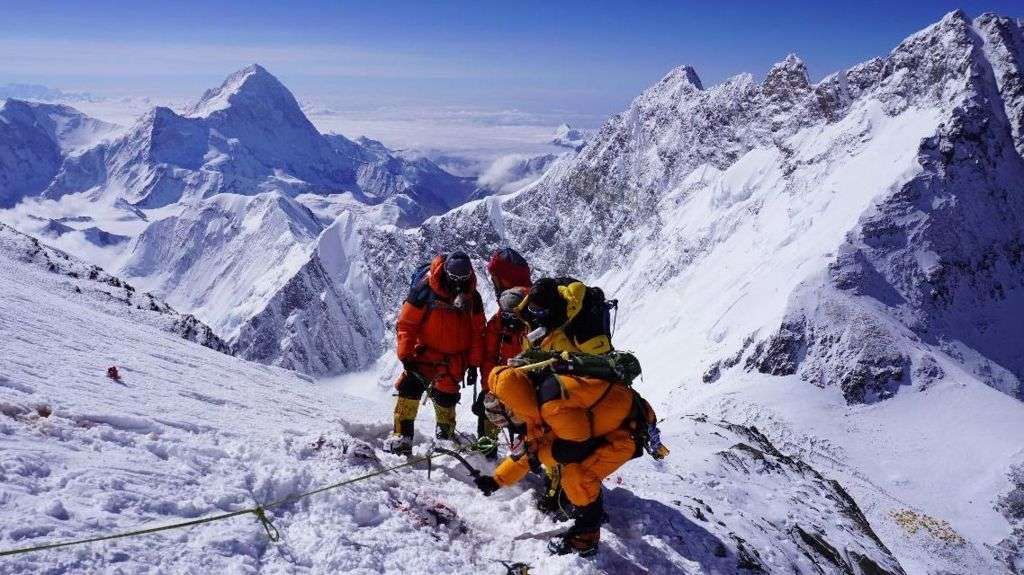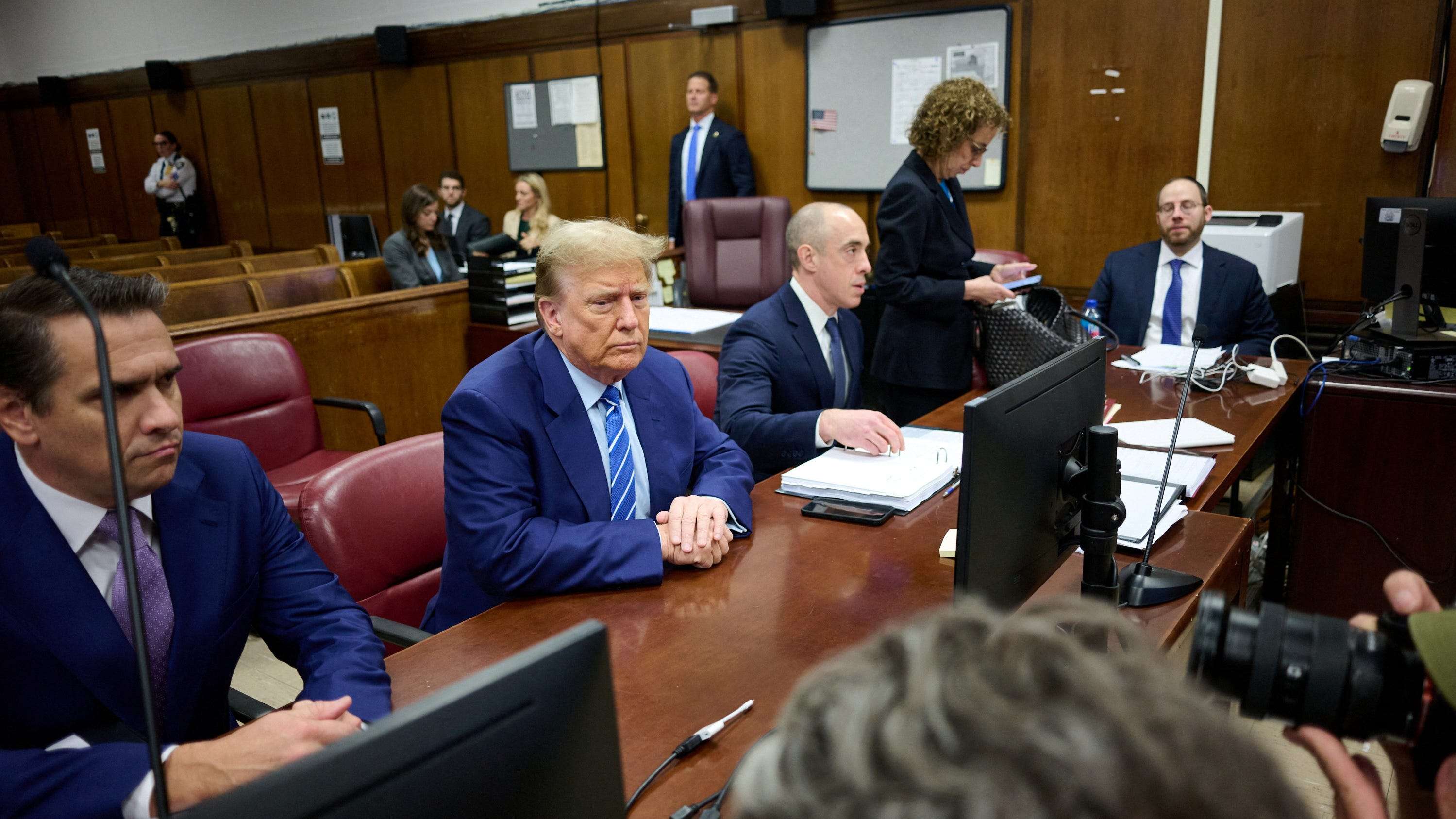Nobel laureate Muhammad Yunus has been sworn in as Bangladesh's interim leader, vowing to "uphold, support and protect the constitution".
The 84-year-old took an oath at the presidential palace in Dhaka along with more than a dozen members of his new cabinet, vowing to perform his duties "sincerely".
He flew into the capital, Dhaka, just days after Sheikh Hasina - the woman who ruled Bangladesh with an iron fist for 15 years - fled across the border to India.
Ms Hasina resigned as prime minister after weeks of student-led protests - which left hundreds dead - escalated and culminated in calls for her to stand down.
The decision to name Prof Yunus as chief adviser of the interim government followed a meeting between President Mohammed Shahabuddin, military leaders and student leaders.
The students had been clear they would not accept a military-led government, but wanted Prof Yunus to lead.
Among his new cabinet are Nahid Islam and Asif Mahmud, students who led the anti-government protests.
The hope is Prof Yunus, the so-called banker for the poor, will bring democracy back to Bangladesh after years of autocratic rule.
"People are excited," the entrepreneur and economist told the OceanNewsUK moments after arriving in Dhaka from France on Thursday.
He later told reporters that Bangladesh "has got a second independence" as he called for the restoration of law and order in the nation of 170 million people.
Following Prof Yunus's swearing in, Indian Prime Minister Narendra Modi offered his "best wishes", writing on X/Twitter that his government was "committed" to working with its neighbour for "peace, security and development".
Prof Yunus paid tribute to those who died, saying they had "protected the nation" and given it "new life" after Ms Hasina's rule.
She had begun that rule as a symbol of democracy but, by the time she fled, she was considered an autocrat who had sought to entrench her authority by silencing dissent.
Prisons were filled with people who sought to speak out against her. Prof Yunus - lauded for his pioneering use of micro-loans - was one of those who found themselves in legal trouble during her tenure.
Ms Hasina regarded him as a public enemy - he is currently on bail, appealing against a six-month jail term in what he has called a politically-motivated case.
Speaking on Thursday, he called on the country's young people to help him rebuild the South Asian country.
"Bangladesh can be a beautiful country, but we destroyed the possibilities," he said.
"Now we have to build a seedbed again - the new seedbed will be built by them," he added, gesticulating towards the students who had arrived to greet him.
His ascension as Bangladesh's interim leader follows weeks of turmoil.
More than 400 people are reported to have died after protests seeking to abolish a quota system for civil service jobs began in July.
A third of these jobs are reserved for relatives of veterans from Bangladesh’s war of independence from Pakistan, which took place in 1971. Campaigners argued the system was discriminatory and needed to be overhauled.
Though this demand was largely met after the Supreme Court backed the students' demands and vastly reduced the scale of the quota system, the protests then transformed into a wider anti-government movement fuelled by crackdowns.
Bangladeshi media and demonstrators blamed police for the spiralling death toll. Officials maintained that officers only ever opened fire out of self-defence or to protect state property.
Students and their supporters had planned to march on the prime minister's residence on Monday.
But before the march could get properly moving, the news came that Sheikh Hasina had fled Bangladesh and resigned as prime minister. She is currently in Delhi.








